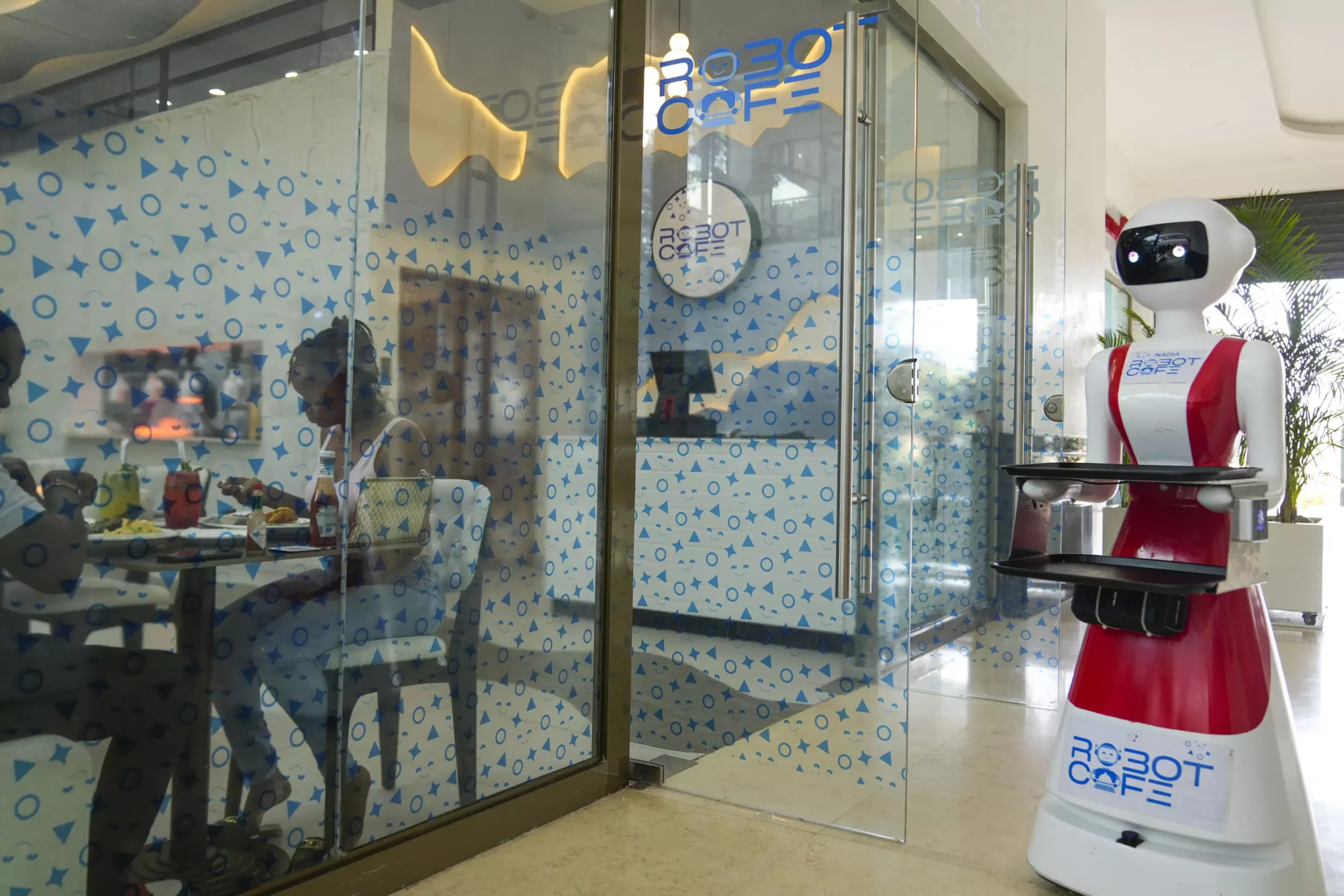A new wave of technology has hit Nairobi, Kenya’s capital, with the introduction of robot service at a local eatery. The Robot Cafe, the first of its kind in Nairobi and East Africa, has captured the attention of both young and old customers. Children giggle in amusement as smartphones are raised to capture the robots gliding among human waiters, delivering plates of food with precision.
Investment in Innovation
Cafe owner Mohammed Abbas took a leap of faith by investing in these preprogrammed robots after experiencing robot service in Asian and European countries. Despite the high cost of importing the robots, Abbas believes that the investment has paid off. The restaurant is often busy with curious customers who are eager to experience the novelty of robot service. One satisfied customer, Packson Chege, described the experience as unique and praised the owner for the innovative concept.
While the robots at the cafe add an element of excitement and efficiency to the dining experience, human waiters still play a crucial role in taking orders and ensuring that customers receive personalized service. The robots, named Claire, R24, and Nadia, are limited in their interaction with customers and are primarily used for food delivery. Waiters use an iPad application to command the robots, but they are essential in providing a human touch to the overall dining experience.
Despite the growing presence of technology in the hospitality industry, experts believe that there is a place for both robotic and human service to coexist. Edith Ojwang, a hospitality industry expert, emphasizes that different customers have varying preferences when it comes to service. While some may enjoy the efficiency of robotic service, others prefer the warmth and personal touch of human interaction. This diversity in customer preferences highlights the importance of maintaining the human element in the hospitality industry.
The Future of Workforce
The introduction of robots in the restaurant industry raises concerns about the future of the workforce, especially in regions like Africa with a young population. However, the cafe’s manager, John Kariuki, reassures that robots are not a replacement for human workers. He acknowledges that robots have limitations and cannot fully replace the range of services provided by human waiters. Kariuki also points out the high cost associated with acquiring and maintaining these robots, making them less practical for cost-saving measures.
The emergence of robot service at the Robot Cafe in Nairobi signifies a shift towards innovation and technology in the hospitality industry. While robots bring efficiency and novelty to the dining experience, human waiters continue to play a vital role in providing personalized service and maintaining the human touch that customers value. The coexistence of robotic and human service reflects the diverse preferences of customers and highlights the importance of adapting to evolving technologies while preserving the essence of human interaction in hospitality.


Leave a Reply